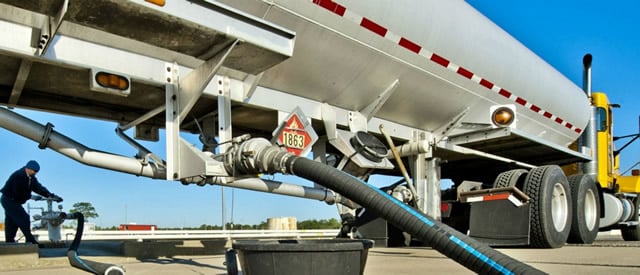Aviation experts and Jet A1 marketers have called on the Federal Government to urgently rehabilitate and reopen the 98-kilometre pipeline that transports aviation fuel to the Murtala Muhammed Airport in Lagos. They said reopening the long-abandoned pipeline will help reduce fuel distribution costs, ease traffic congestion, and improve safety around the airport.
The pipeline, which used to supply Jet A1 directly to the airport, was shut down in 1992 after a reported rupture. It has remained out of service for more than three decades due to allegations of sabotage and lack of maintenance. Since then, fuel marketers have relied on trucks to move aviation fuel from depots to the airport, a method that experts say is costly, risky, and inefficient.
Speaking at a colloquium themed “Aviation Fuel Business in Nigeria: The Scenario and the Metaphor,” the Managing Director of CITA Energies Limited, Dr. Thomas Ogungbangbe, stressed the need for immediate government action to restore the pipeline. He said bringing it back into operation would save the country millions of dollars monthly and improve efficiency in the aviation fuel supply chain.
According to Dr. Ogungbangbe, “The closure of the Jet A1 pipeline has put unnecessary pressure on road infrastructure and the entire fuel logistics system. If this pipeline is reopened, over 100 fuel trucks will be removed from Lagos roads daily. This will help reduce traffic congestion, lower road accidents, and minimize losses caused by delays and poor fuel handling.”
He also highlighted the economic benefits of reviving the facility, explaining that the pipeline would significantly cut the cost of aviation fuel, which currently forms a major part of airline operating expenses. “Reopening the pipeline will not only improve efficiency and safety but also enhance the quality of fuel supplied to airlines,” he added.
Ogungbangbe further urged the Federal Government and relevant regulatory bodies to address systemic inefficiencies affecting the aviation fuel sector. He expressed concern that the number of aviation fuel marketers operating in Nigerian airports has grown beyond what the market requires.
“We still lose millions of litres of Jet A1 to neighbouring West African countries. However, some of these losses are being reduced due to the operations of Dangote Refinery in the past 18 months,” he said. “Our industry is growing, but we are also groaning due to a lack of adequate control. We used to have about six fuel marketers in the country, but now we have over 45. While competition is healthy, this expansion has created issues with fuel quality and regulatory oversight.”
In his contribution, the Managing Director of Ndano Energy, Mr. Chris Ndulue, also called for stricter regulatory supervision by the Nigeria Civil Aviation Authority (NCAA). He said it is important for the NCAA to strengthen oversight on the quality of Jet A1 supplied to airlines to avoid safety risks.
Ndulue also advised the Federal Airports Authority of Nigeria (FAAN) to be more careful in allocating land to aviation fuel marketers within airports. According to him, too many operators are being licensed to distribute fuel, which is causing duplication and inefficiency.
“Some airports have as many as 30 fuel marketers, which is excessive,” Ndulue said. “For example, at Enugu Airport, there are about five aviation fuel marketers, which is already a large number considering the scale of operations there. It is necessary for operators to collaborate and share resources for efficiency. Although collaboration can be difficult due to past experiences, it is the only way to improve fuel supply operations in the long term.”
Industry stakeholders at the event agreed that restoring the aviation fuel pipeline would benefit the economy, improve safety standards, and help airlines reduce operating costs. They called on the Federal Ministry of Aviation, the Nigerian National Petroleum Company Limited (NNPCL), and other relevant agencies to prioritize the rehabilitation project as part of broader efforts to stabilize the aviation sector.
They emphasized that the current reliance on fuel tankers is unsustainable and contributes to the high cost of Jet A1, which has affected local airlines’ profitability and ticket prices. Experts warned that without urgent action, the inefficiencies in fuel distribution could continue to hurt Nigeria’s aviation growth and its goal of becoming a regional air transport hub.
